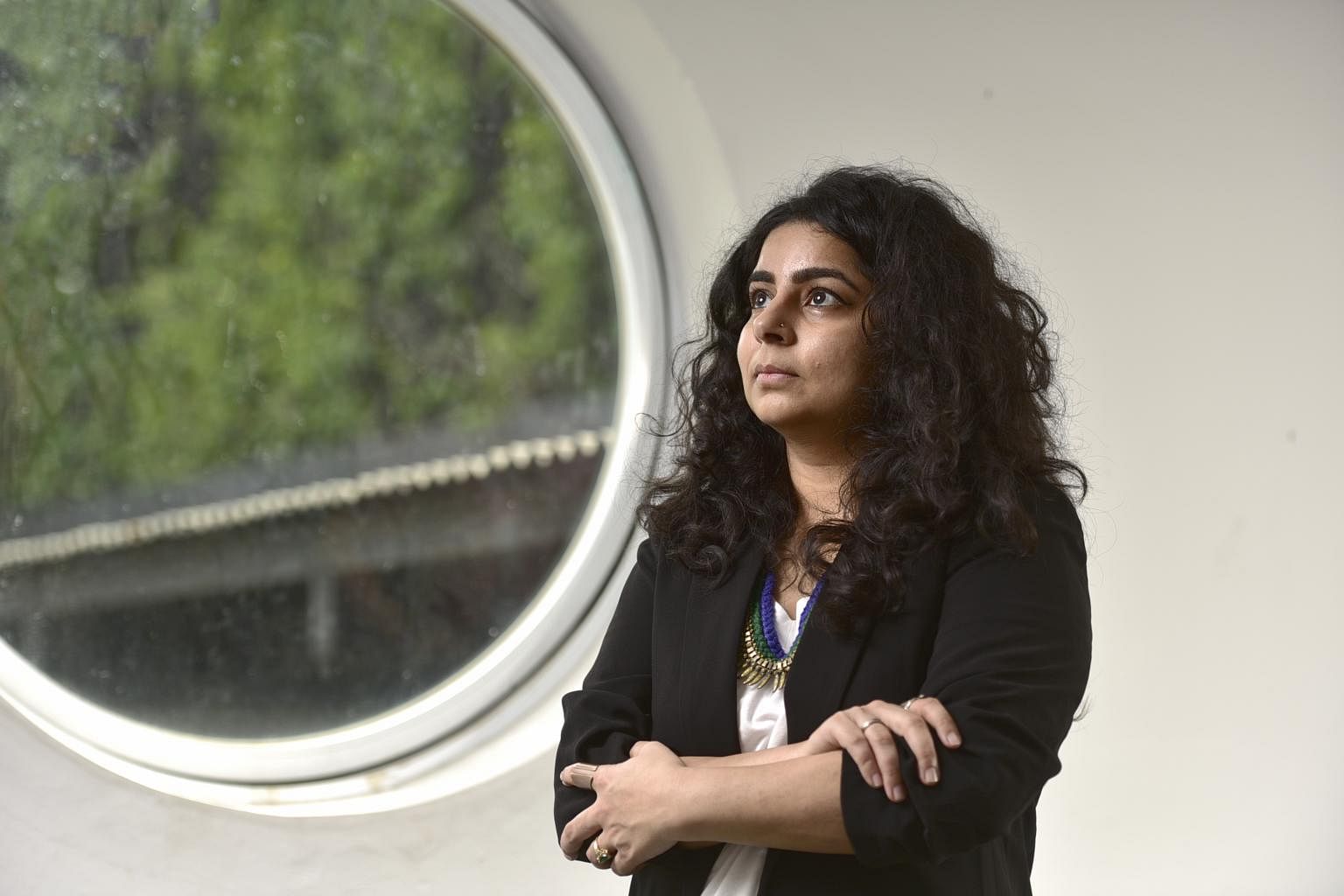SINGAPORE - Poet Pooja Nansi finds poetry through dancing. Many poems from her third collection, We Make Spaces Divine, came out of nights on the dance floor, she says.
"For me, dancing is a meditative form of self-care. I feel free when I dance with my friends to the music that I love. It beats a yoga class for me any time."
We Make Spaces Divine is Nansi's first collection in seven years, though in between her last publication - Love Is An Empty Barstool (2013) - and this one, she has been busy.
In 2019, she made history as the first female Singapore Writers Festival (SWF) director and saw the event through its first digital edition during the pandemic last year.
She has also written for theatre - You Are Here (2016) and Thick Beats For Good Girls (2018) - and become a new mother to four-month-old Nyra, who was born a few weeks before last November's SWF.
All this while, the poems of We Make Spaces Divine simmered on the boil. They date from 2009 to last year - some allude to incidents as recent as the 2019 controversy over actor Dennis Chew's "brownface" advertisement.
The poems, Nansi says, are a "scrapbook of the things that have moulded me into who I am".
In them, she pays homage to the people, spaces and pop culture who shaped her, from now-defunct nightclubs to shopping complex Mustafa Centre; from the films of Bollywood legends Amitabh Bachchan and Madhuri Dixit to songs like A-ha's 1985 hit Take On Me and its 2017 acoustic cover.
"Writing this collection was very restorative," she says. "It gave me a way to think about my own identity that wasn't coming from a space of being diminished, but rather from a space of asserting.
"It was the shift from thinking about how I was perceived to thinking about writing from myself, rather than against versions of the self that don't feel true."
She turns 40 this year. Before she turned 30, she had "an existential moment, as most people do - 'oh my God, my 20s are all gone, I haven't done this and that, I thought I would be here, but I'm here instead'. And then I remember turning 30, and a sudden calm coming over me".
The collection has also helped her take stock of this passage of time. "It's honouring my past selves and saying, I'm no longer there, but the things that taught me are going to help me survive my future self. It's holding all of me and all my multiplicities together."
The title poem refers to artist Priyageetha Dia's 2017 installation, in which she covered a staircase in her Housing Board block with gold foil, contravening town council by-laws.
"I was struck by how she was working with gold because it was a generational material for her," says Nansi.
"I was thinking about how so many of us with our art, or just with our presence, make spaces divine - that divinity isn't some big, fluffy, spiritual concept, that it is in the everyday, in the work of our mothers' hands or our fathers' labour, in the kindness of our friends.

"Then the manuscript started shaping itself around the idea of reclaiming spaces in which you or others might not feel that kind of dignity, the idea that our bodies, our presence and our lives are really what inhabit those spaces and give those spaces meaning."
Nansi was born in Gujarat, India, and came to Singapore when she was one year old. She taught at Temasek Junior College for nine years and received the National Arts Council's Young Artist Award in 2016.
Singapore's first Youth Poet Ambassador, she has often pushed to recognise poetry in forms other than on the page, such as spoken word, and been vocal on issues of race and gender.
Some have called her an "angry woman poet", which she says is "not inaccurate".
"I don't think anger is a bad emotion," she adds. "There are a lot of productive uses for anger."
She closes her collection with the poem The Feelings Of Brown People: A Radio Dedication Show With A Forever Engaged Hotline, which ends with the line, "What can we build with our real and righteous rage?"
She takes her cues from hip-hop music, she adds.
"It's born out of protest. A lot of hip-hop I grew up listening to are protest songs, but the wonderful thing is that they were protest songs that we were dancing to. It's using joy to protest, which I think is a very beautiful concept.
"Choosing to be joyful is also a political act. Choosing to continue shining light on your people, your culture, your life and your achievements is a political act. If you feel diminished or like something's not right, but you choose to show the things that are wonderful about you anyway, how is anyone going to stop you from saying you're awesome?"
• We Make Spaces Divine ($25 before GST) is available here.


